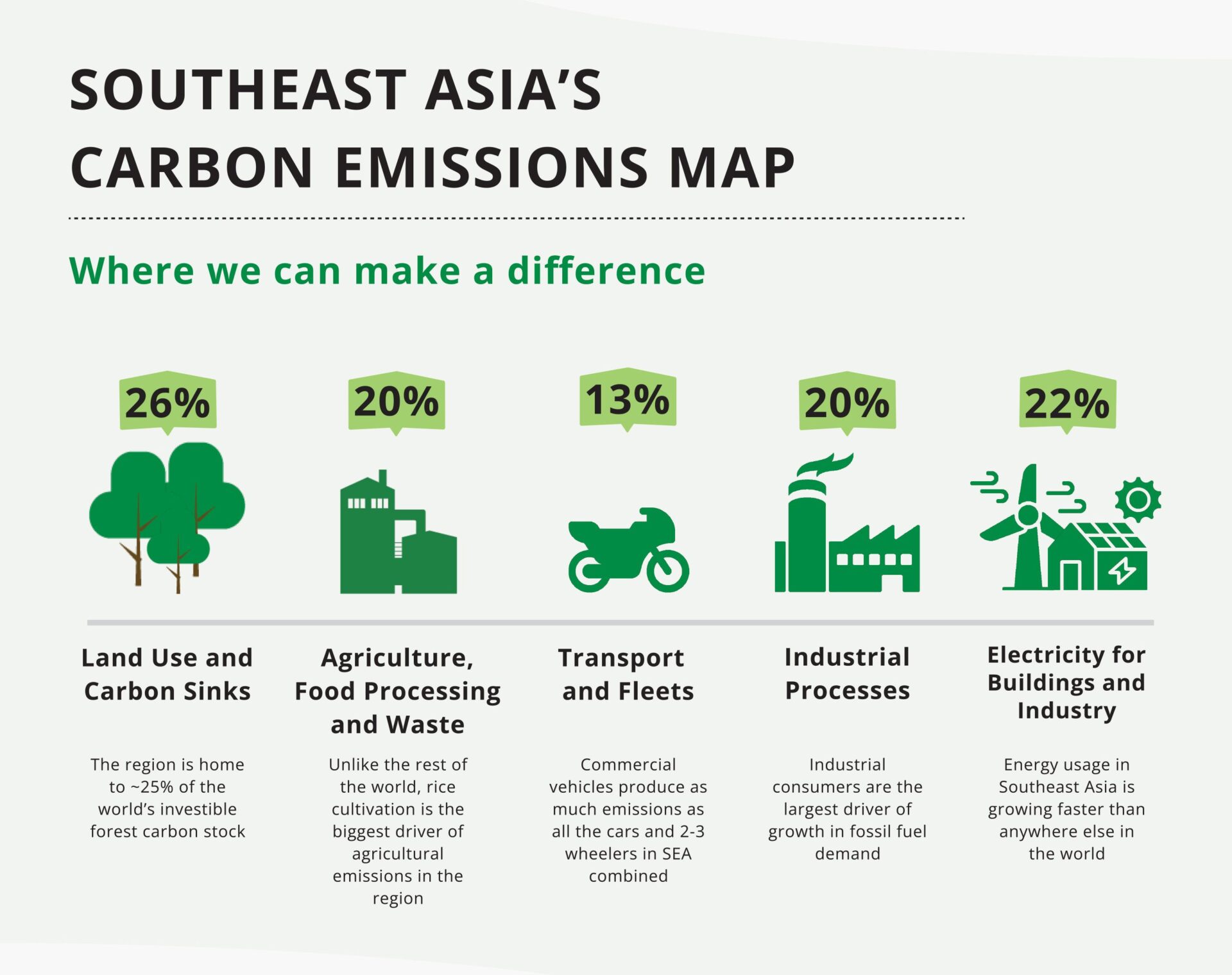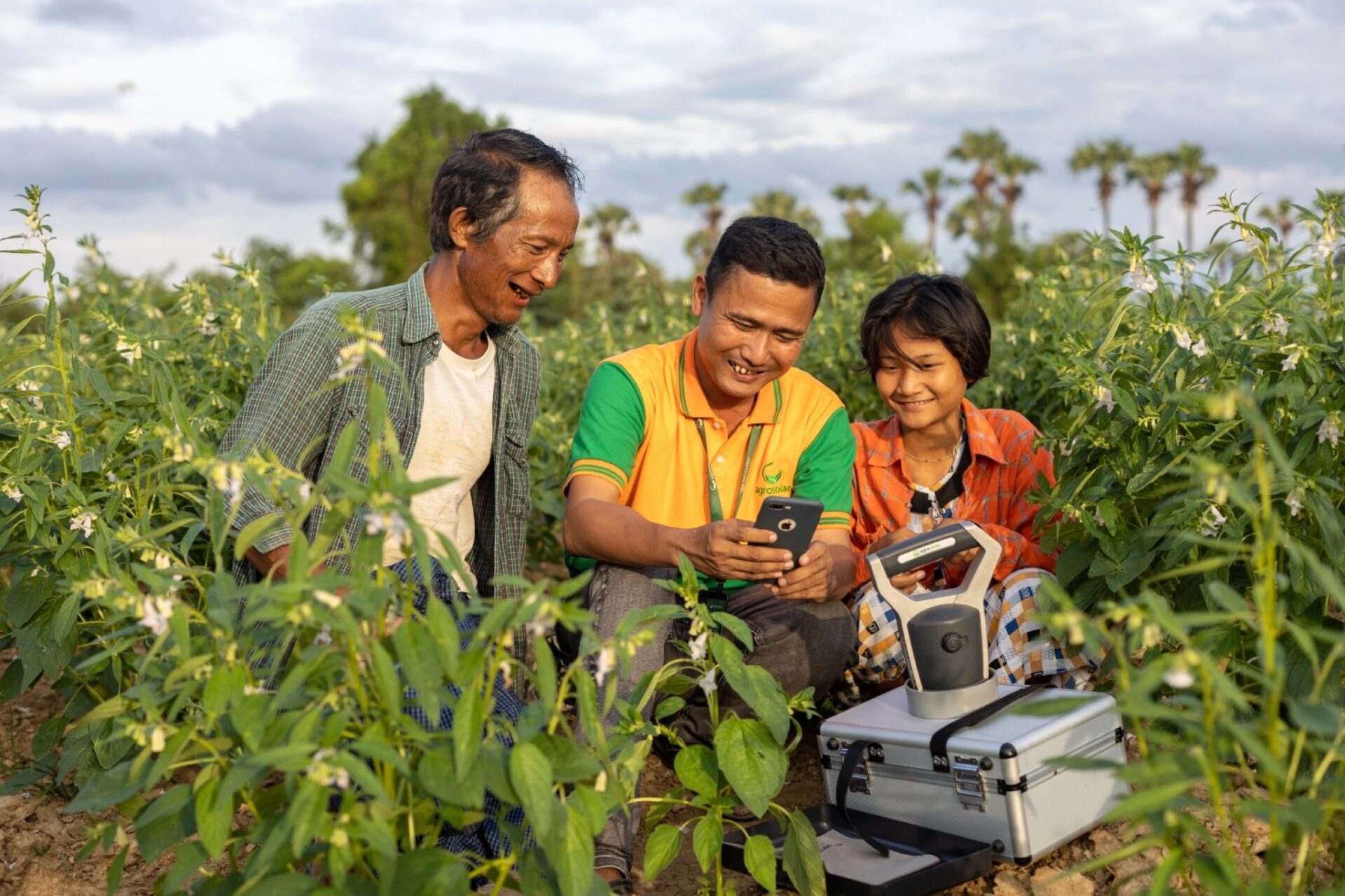Second only to sub-Saharan Africa in climate change vulnerability, Southeast Asia (SEA) faces significant challenges due to extensive coastlines, agriculture-dependent livelihoods, and heavily populated low-lying areas. Climate change poses severe physical risks to Southeast Asian communities and threatens local economies. Experts estimate that by 2100, unchecked climate change could shrink the region’s gross domestic product (GDP) by up to 11%—more than twice the global average.
The urgent need for climate innovation in Southeast Asia
SEA not only faces the challenge of adapting to climate change but also how to mitigate its increasing emissions. With a population of nearly 690 million, the region’s energy demand has risen by an average of 3% annually over the past two decades—with coal playing a large part in meeting this demand. The region is home to some of the largest carbon sinks in the world, but these are rapidly being depleted.
A recent Deloitte report forecasts that climate change-induced economic losses will reduce SEA’s GDP by an average of 7.5% annually through 2070—amounting to more than $28 trillion—but that shifting towards a low-carbon development pathway could add $12.5 trillion to the SEA economy during the same period. Climate innovation investment in the region is increasingly crucial for both mitigating the impacts of climate change and developing the adaptive capacities for people, economies, and environments in SEA and around the globe.
Why Wavemaker Impact?
The Autodesk Foundation is excited to welcome Wavemaker Impact to our Health & Resilience portfolio. Wavemaker Impact (WMi) is Southeast Asia’s first climate tech venture builder, committed to driving large-scale decarbonization efforts in the region.
WMi has set ambitious impact targets with the goal of reducing global greenhouse gas emissions by 10% by 2035. To achieve this, WMi is actively building a portfolio of ventures focused on SEA’s highest emitting sectors. All WMi portfolio companies align with the fund’s ‘100×100’ investment strategy, meaning that each company has the potential to reach $100 million in recurring revenue and abate 100 million tons of CO2e emissions annually.
Long-term climate resilience and decarbonization requires derisking breakthrough technologies but also scaling up existing solutions that help communities adapt to risks and can immediately reduce CO2e emissions. Many impactful technologies, however, have seen low adoption rates in low-resource communities. WMi sees the opportunity to unlock mass deployment and—through a structured venture build process, extensive networks, and seed investment—supports experienced founders to launch new ventures with innovative models for incentivizing customer uptake of previously underutilized technologies and practices.

Key to WMi’s approach is focusing on the climate issues most salient to SEA, surfaced through extensive carbon mapping, to catalyze ventures with the largest potential for impact. The ventures WMi supports span multiple sectors—including agriculture and food, land use and deforestation, industry and industrial processes, mobility, and energy and the built environment—addressing specific emissions reduction opportunities within each sector.
To date, WMi has invested in and launched six ventures, with another four currently in development. The firm is on track to finalize its tenth investment by the end of 2023 and is in the process of launching its first companies in India and Australia. Its current portfolio includes: Agros, a sustainable farming platform for horticulture farmers; WasteX, a distributed biochar technology company that sequesters agricultural waste emissions; Rize, a platform for farmers to reduce methane emissions in rice cultivation; Helios, Southeast Asia’s first residential solar mortgage company; Bumi Baru, a degraded land flipping company in Indonesia; and RegenX, a regenerative agriculture platform focusing on commodity crops like coffee and cacao.
Our collaboration
As an Autodesk Foundation portfolio organization, Wavemaker Impact will leverage Autodesk industry knowledge to understand CO2e emissions reduction opportunities in the built environment and industrial processes. Ventures in the WMi portfolio will have access to Autodesk technology, talent, and networks to customize products for local customers and accelerate adoption of technologies that advance climate resilience and decarbonization.

“The built environment is responsible for up to 40% of global emissions. We are grateful and excited for our collaboration with the Autodesk Foundation, which will bring support and technical expertise to Wavemaker Impact’s mission to abate 10% of the global carbon budget through building high-impact 100×100 ventures.”
— Marie Cheong, Founding Partner, Wavemaker Impact
By supporting ventures like those developed by Wavemaker Impact, we can drive significant emission reductions, promote sustainable practices in sectors like agriculture and energy, and improve the livelihoods of communities in Southeast Asia. We’re excited to seize this opportunity to invest in a sustainable future and make a lasting impact on the livelihoods, environments, and economies in SEA and beyond.
Learn more about Wavemaker Impact’s decarbonization investment strategy and its growing portfolio of sustainability-focused ventures.
